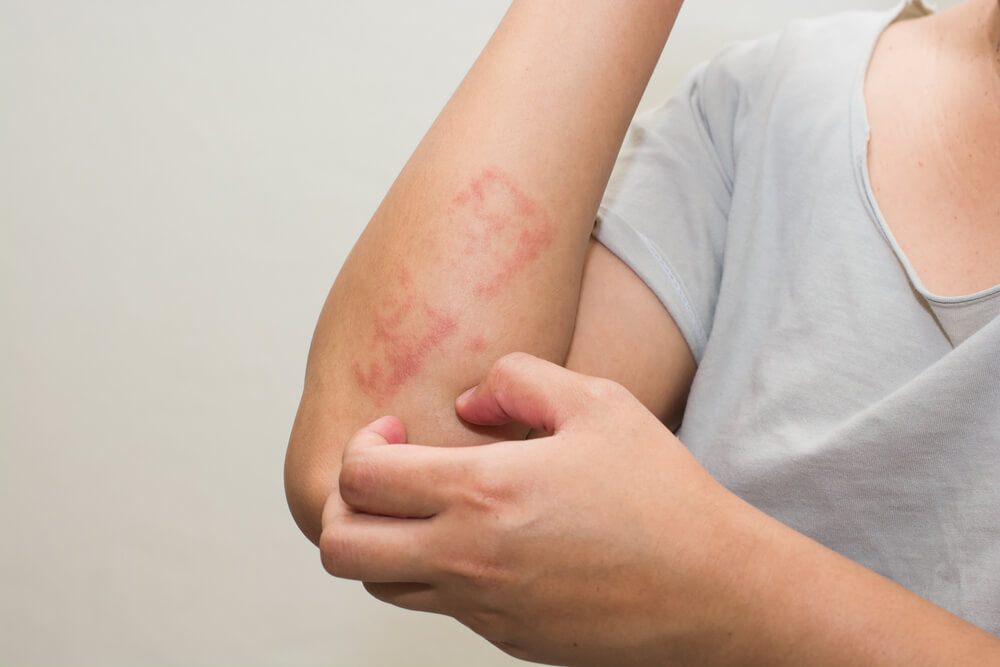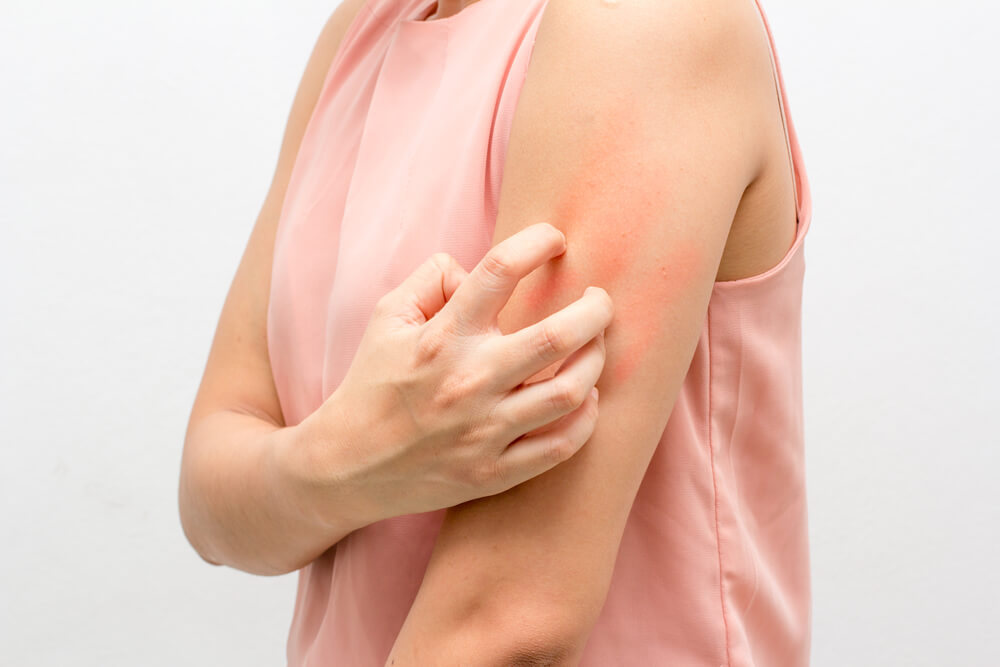When you start noticing inflammation, irritation, and redness on the skin, it might be a sign that you are facing atopic dermatitis, more popularly known as atopic eczema. This condition is quite common, and it can begin either in your childhood or later on since it can develop at any age. The topics of what causes eczema and what the main symptoms of atopic dermatitis are will be the main topics of today’s article, so keep reading to find out more.
Atopic eczema can be recognized mainly by the fact that the skin becomes very itchy, leading to swelling, redness, cracking, scaling, etc., considering that most people often scratch it. Although the condition is not contagious, so it cannot be spread from one person to the next, the skin does look flared up and requires a skin allergy treatment. When some of the above-mentioned symptoms of atopic dermatitis appear, make sure you contact a qualified clinic, such as the Allergy and Immunology Center, to speak to a professional and find out how to remedy the condition.
Atopic dermatitis can be quite uncomfortable for people who are suffering from it because it not only itches and leaves painful stamps on the skin but also looks quite unpleasant; due to this, people often feel uncomfortable and ashamed. Living with atopic eczema can be very challenging, especially if the condition’s location is problematic and if the symptoms are severe.
What Causes Atopic Dermatitis?
Unfortunately, the exact answer to what causes atopic dermatitis does not exist. Experts and researchers have not found the direct cause of the condition yet, but they have discovered that it can be related to genetics, the environment, and our immune system. Some researchers have discovered that the skin becomes very dry and prone to damage when it loses moisture, so inflammation is possible. This leads to itchy sensations and the immediate need to scratch the itchy skin patch.
Scratching always leads to more damage and increases the risk of infection caused by bacteria. As mentioned, some factors have been seen as contributing when it comes to atopic eczema, and they include:
- Genetics: The chances of developing this condition are higher if there is a family history of it. Also, experts have discovered that there is a specific protein that helps the body maintain a healthy skin barrier, and if the levels of the protein are not high enough, the barrier changes. This means that the moisture is lower, and the skin is automatically more prone to damage and developing the condition.
- Immune system: Our immune system’s primary role is to protect us from different diseases, viruses, and bacteria. Sometimes, the system becomes overactive, or it gets compromised, and this can lead to skin inflammation and eczema.
- Environment: Depending on the patient’s environment, the skin barrier can be compromised due to changes within the immune system. More moisture can be let out, and this can lead to the development of atopic dermatitis. If the patient is more exposed to tobacco smoke, air pollutants, fragrances, problematic ingredients in soaps and skin products, or their skin is excessively dry, they might want to reconsider their environment and make some changes.
The question of what causes eczema is still left to be answered, but some simple daily changes patients make have been reported as helpful when it comes to dealing with atopic eczema.

Symptoms of Atopic Dermatitis
We have previously mentioned a few visible symptoms which might signal atopic eczema. These symptoms can vary from mild to severe. The list below is not extensive since every person reacts to this condition differently, but it includes the most common symptoms:
- Dry, red patches of skin
- Rash
- Weeping, oozing fluid from the red patches
- Bleeding caused by scratching
- Hardening of the skin area affected by the condition
- Thickening of the skin area affected by the condition
- Darkening of the under-eye skin
- Skin creases on the soles of the feet and the palms
- Folds of skin under the eyes, i.e., Dennie-Morgan folds
Sometimes eczema can only be located on one part of the body, but very often, it can flare up in more locations simultaneously. It can also change locations and appear literally anywhere on the body. The location and appearance of the rash can depend on age. At the same time, patients with a deeper skin tone can experience lightening or darkening of the area where the atopic dermatitis is located.
Symptoms of atopic dermatitis and their location often depend on the age of the patients, so:
- If the patient is an infant, up to the age of two, the symptoms mostly include a red oozing rash that appears on the scalp, the face, and around the joints. Although young patients get a rash in the diaper area, it is very rarely atopic dermatitis.
- Children from the age of two up to puberty most often get a thick red rash, which can ooze and bleed if scratched, and appears on the neck, elbows, knees, and ankles.
- In the teenage years and adulthood, patients get a dark brown or red rash, which can bleed or crust if scratched. It most often appears on the hands, the neck, around the eyes, on the elbows, knees, feet, and ankles.
All the mentioned symptoms can be quite mild, but they can also lead to severe atopic dermatitis. This stage of the condition includes multiple areas of the body affected by eczema, severe itching sensations, scaling, oozing white liquid in multiple locations, and overall discomfort and pain. The patients can also start suffering from anxiety and depression caused by the condition but also by the lack of information about the causes, which are directly related to effective treatment methods.
Health Complications Caused by Atopic Dermatitis
Very often, atopic eczema can lead to the development of some other health conditions and complications. In children, eczema can lead to the development of asthma and hay fever, which come later in life, and experts are still researching the causes.
Some other conditions that can develop are:
- Food allergies
- Sleep loss (which can cause behavior issues)
- Anxiety
- Depression
- Ichthyosis (skin disease causing dry, thick skin)
- Bacterial infections of the skin caused by scratching
- Viral skin infections (cold sores and warts)
- Hand dermatitis
- Eye issues (pink eye, blepharitis)

Contact Our Center!
Atopic dermatitis can be a very challenging condition, both physically but also psychologically. Severe atopic dermatitis, as the most challenging stage of the condition, can significantly affect the quality of the patients’ lives, so our experts are here for you to set a proper diagnosis and create a treatment plan. You do not have to struggle alone. Schedule your consult today, and let us help you on your path to recovery!


